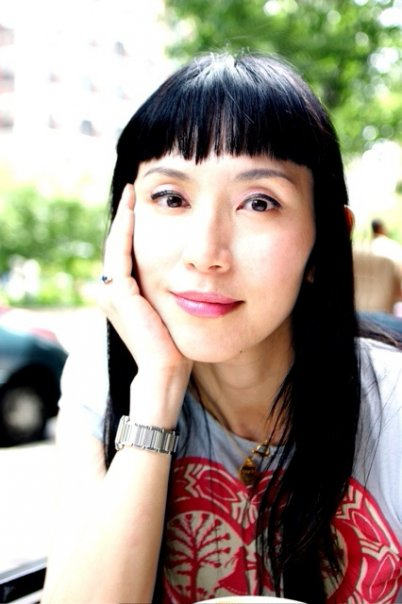 I wrote about the Japanese aesthetic yesterday, and I could not believe the amount of responses that I received from around the world. I am stunned by the fact that our Japanese way could be so foreign to others, because to me it is very natural. So today I was thinking about it in further depth, and I’d like to share some personal episodes that show how the Japanese are in certain situations. Now, please allow me to say that I am not writing this to praise the Japanese. We are not perfect. We have many elements that the foreigners do not like: we are often described as “too reserved,” and that we say “yes” to everything while we constantly shake our heads back and forth!
I wrote about the Japanese aesthetic yesterday, and I could not believe the amount of responses that I received from around the world. I am stunned by the fact that our Japanese way could be so foreign to others, because to me it is very natural. So today I was thinking about it in further depth, and I’d like to share some personal episodes that show how the Japanese are in certain situations. Now, please allow me to say that I am not writing this to praise the Japanese. We are not perfect. We have many elements that the foreigners do not like: we are often described as “too reserved,” and that we say “yes” to everything while we constantly shake our heads back and forth!
Too Honest?
A typical Japanese man who honors honesty and respect for others is my father. Once when I was a teenager, my parents and I went to a shopping mall near Westchester, New York. My father was driving, and when he parked the car in the parking lot, he lightly hit another car. He dashed out the car to check the damage and found a very tiny scratch. So, what did he do? He waited for the car’s owner to return for one and a half hours!
The owner of the car was an elderly lady, and she said to my father, “Did you just wait for me to tell me that you had done this?” My dad said, “Yes.” “But, why?” The lady did not get it.
“That’s how we are!” my dad answered with a smile.
Another episode took place in Tokyo while I was visiting my parents there. One afternoon my father went to a market to buy some groceries to make some Italian dinner. He came home with bags, and he was checking the receipt. Then suddenly he said, “Oh my goodness. The cashier forgot to ring up the tomatoes. I must go back to pay for them.”
“Come on, Dad! It’s just a few tomatoes, and it’s not your fault. Don’t even bother!” I yelled.
Did he go back? Oh, yes, he did, immediately. That is how my father is, and that is how many Japanese are. Japanese honor honesty and politeness. And they take pride in their behaviort.
Lost Wallets..
When I was growing up as a child in Tokyo, it was absolutely common to leave your purses at the restaurant tables to save the seats, and no one would steal them. Nowadays in the big cities, the Japanese don’t do it any more, but in small towns and villages strangers still trust each other till today.
Karma
Karma is not a punishment. Karma means “cause and effect”- what you do simply comes back in some ways. Buddha talked about cause and effect, and he taught how to control your mind. Japanese are extremely disciplined, and they can endure with a great deal of patience.
Patience
So, whether good or bad, these cultural elements of the Japanese have been helpful to put the tragic nation together at the moment. People are staying calm patiently. As a Japanese who grew up in New York, I must learn from my people in Japan. It is my time to go back to my deep roots, and learn from my ancestors who were dignified warriors. I am the “daughter” of the last Samurais after all.
Rima Fujita is a full-time artist living in San Diego, California. She was born in Tokyo, and has lived in New York City for 32 years. More about her on http://rimafujita.blogspot.com/






The values and cultural mores that you have written about remind me strongly of what we, as Indians, were taught by our parents and grandparents too … honesty, faith, patience, honour. I too remember incidents from my childhood akin to the one of going back to pay for the tomatoes … in fact, I remember when a teacher overmarked me in an exam paper, I did not have to think twice about going up to her and getting my marks deducted, even though it meant a lower rank in the class tally.
But somewhere along the way, our country seems to have left its cultural values behind in its hurry to get ahead on a path that wasn’t ours. And this is the difference that we were taught as students of Economics too … The Japanese model of development is always held up as an example because Japan trod the path indicated by its cultural values and systems to come out on top … as I’m sure it will, once again! The world has a lot to learn from this great nation!
Love your post Rima, you bring to light the things I love and admire in my Japanese friends.
Parul, thank you for sharing your story – it is wonderful! As an Indian film lover I have watched so many Indian films that show how much people value the morals and respect in your country, so I am not surprise to hear your episode at all! I’d like to believe that we humans all have the goodness in our heart by nature 🙂
Dianne, thank you, and I hope your Japanese friends are all safe.